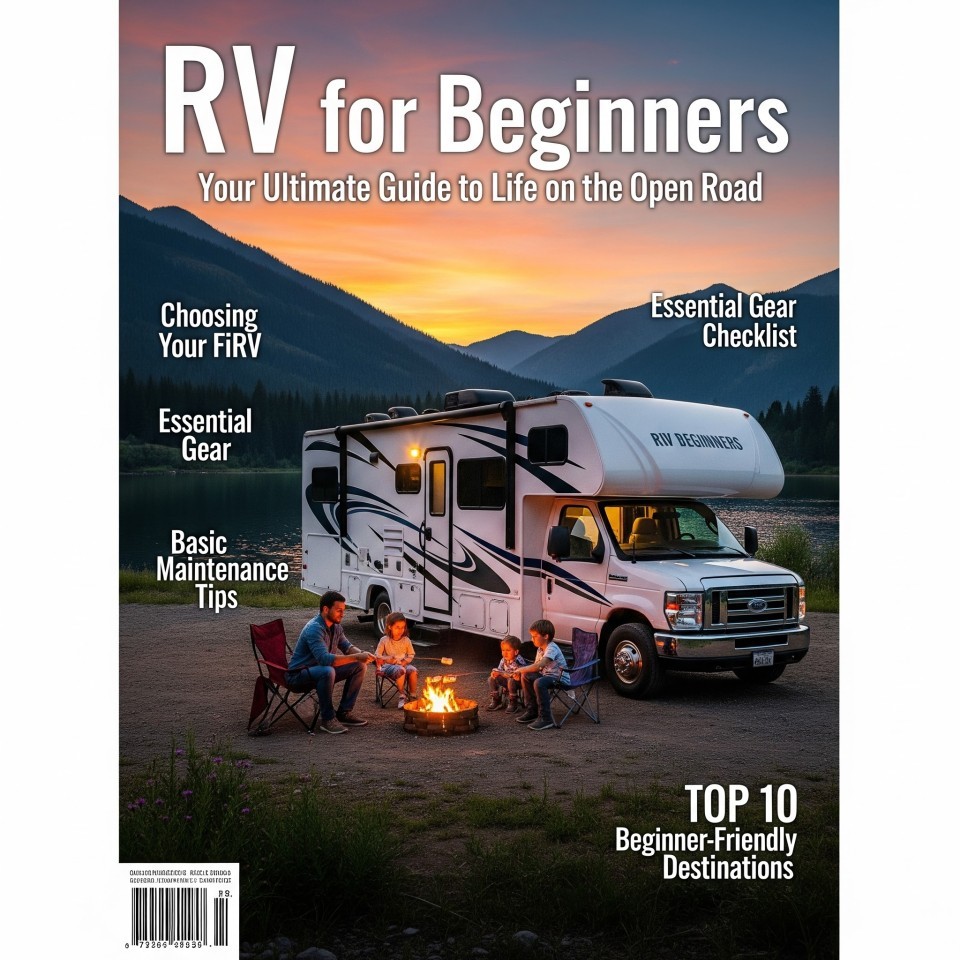WEnRV travel news, products, and industry trends
RV for Beginners
Welcome to the world of recreational vehicles (RVs)! This guide is designed to help newcomers understand the basics of RV life, from choosing the right vehicle to essential tips for a smooth trip.
1. Choosing Your RV
The first step in your RV journey is deciding which type of vehicle is right for you. They are broadly categorized into three main types: Class A, Class C, and Towables.
RV Type | Description | Key Features |
|---|---|---|
Class A | Large, bus-like motorhomes, often built on commercial truck or bus chassis. | Most spacious, luxury amenities, highest cost. |
Class C | Smaller motorhomes with a distinctive cab-over bunk area. Built on a cutaway chassis. | Easier to drive, better fuel efficiency than Class A, good for families. |
Towables | Includes travel trailers, fifth wheels, and pop-up campers. Requires a truck or SUV for towing. | Detachable from the tow vehicle, variety of sizes, more affordable than motorhomes. |
Consider the following factors when choosing an RV:
- Budget: Purchase price, maintenance, insurance, and fuel costs.
- Travel Style: Weekend warrior or full-time living?
- Capacity: How many people will be traveling?
- Amenities: Do you need a full kitchen, a separate bedroom, or a washer/dryer?
2. Essential Pre-Trip Checklist
Before heading out on your first adventure, make sure you complete this checklist to ensure everything is ready.
- Vehicle Check:
- Tires (pressure, tread depth, and spares)
- Engine fluids (oil, coolant, transmission)
- Brakes and lights
- Generator check
- RV Systems Check:
- Water tanks (fresh, grey, black)
- Propane levels
- Electrical hookups and battery charge
- Appliances (refrigerator, stove, water heater)
- Safety & Security:
- First aid kit and emergency road kit
- Fire extinguisher
- Check smoke and carbon monoxide detectors
- Secure all loose items inside the RV
3. On the Road: Driving and Parking
Driving an RV is different from driving a car. Take your time, practice in a safe environment, and always be aware of your vehicle's size.
- Braking: RVs take longer to stop. Maintain a greater following distance than you would in a normal vehicle.
- Corners: Swing wide on turns to account for the longer length of your RV and to avoid hitting curbs.
- Height: Always know the exact height of your RV and pay close attention to low clearance signs (bridges, drive-thrus, gas stations).
- Parking/Leveling: Use a level or phone app to ensure your RV is level when parked. This is crucial for proper operation of the refrigerator and a comfortable sleep. Use leveling blocks as needed.
4. Campground Setup and Etiquette
Setting up at a campground involves connecting utilities and respecting your neighbors.
Hooking Up Utilities
Utility | Task | Notes |
|---|---|---|
Electric | Connect the power cord to the shore power pedestal. | Ensure the breaker is off before plugging in. Use a surge protector. |
Water | Connect a potable water hose to the RV inlet. | Use a water pressure regulator to protect your plumbing. |
Sewer | Connect the sewer hose from the RV outlet to the dump station connection. | Always dump the black tank first, then the grey tank to rinse the hose. |
Campground Manners
- Quiet Hours: Respect the designated quiet hours, typically from late evening to early morning.
- Campfires: Check local regulations and only have fires in designated rings. Never leave a fire unattended.
- Pets: Keep pets on a leash and always clean up after them.
- Trash: Dispose of all trash in designated receptacles.
5. Troubleshooting and Maintenance
Being prepared for minor issues is part of the RV experience. Keep a log of your RV's maintenance and a basic toolkit handy.
Common Beginner Issues
- Dead Battery: Ensure all lights and fans are off when disconnected from shore power.
- Clogged Toilet: Use RV-specific toilet paper and plenty of water when flushing.
- Leveling Problems: Can affect appliance function and door operation. Re-level as soon as possible.
6. Planning Your Next Trip
The best part of RV life is the freedom to explore! Use trip-planning tools to find campgrounds, calculate mileage, and track maintenance.
- Finding Campgrounds: Websites and apps specializing in RV parks and resorts are a great resource.
Reservations: Popular campgrounds, especially during peak season, require advance reservations.



